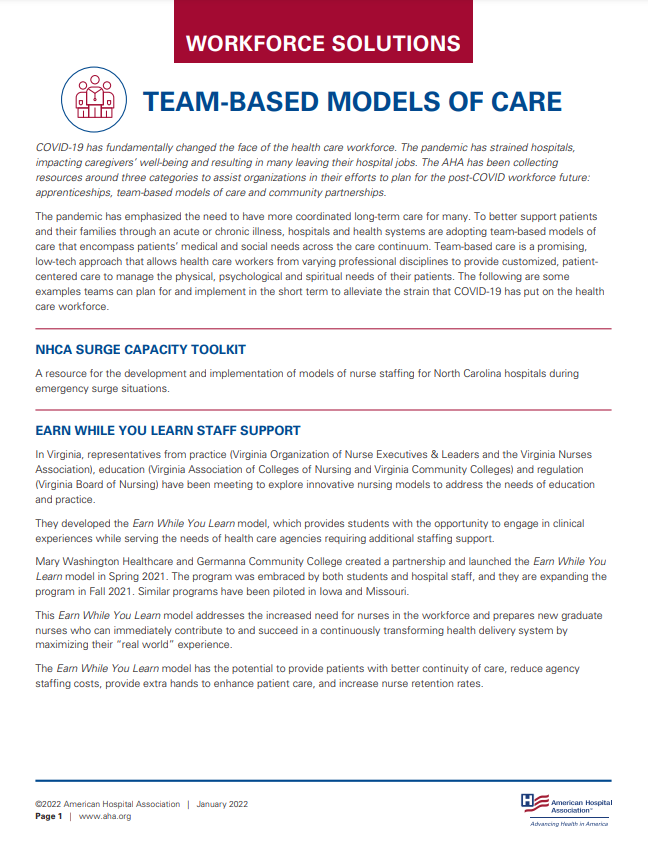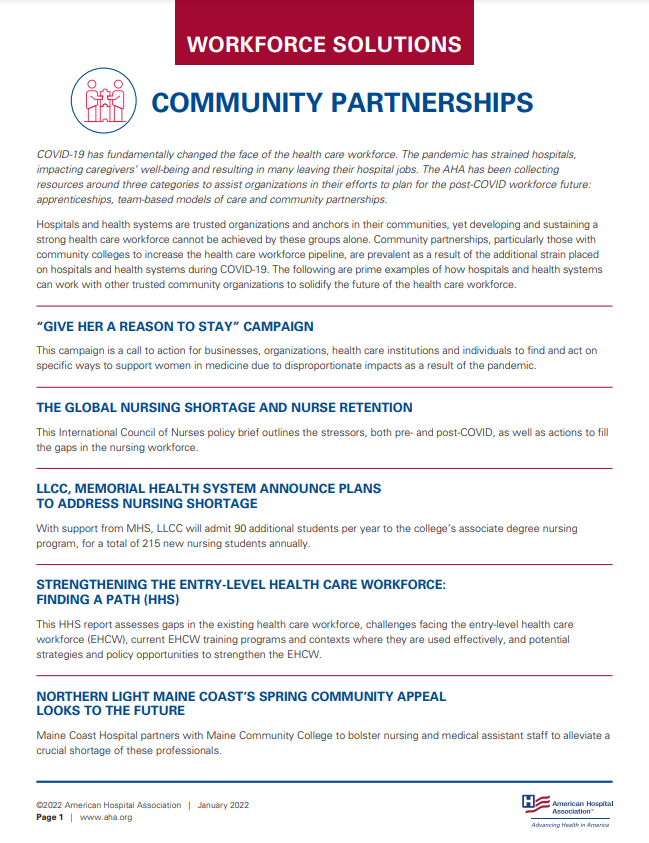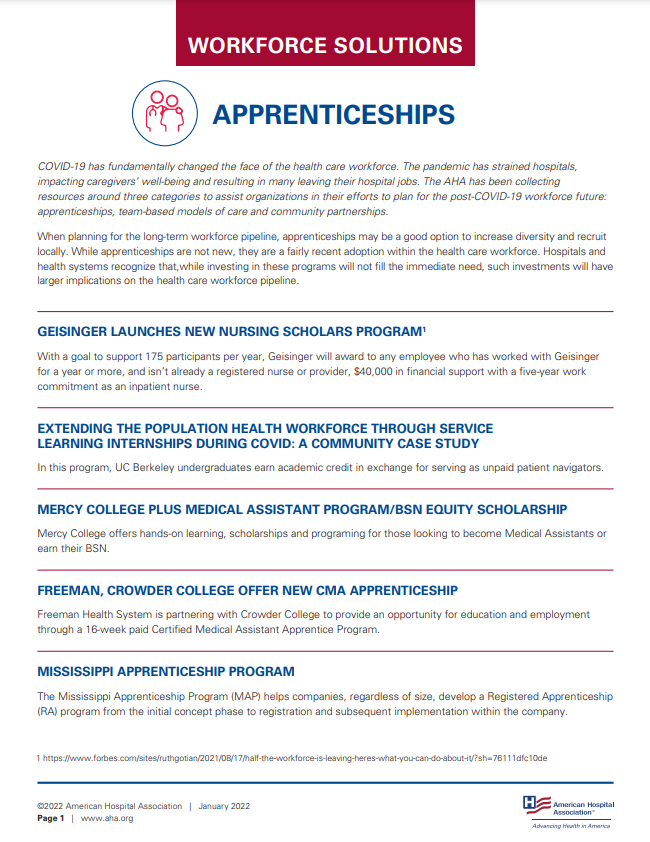COVID-19 Workforce Solutions: Team-based Models of Care, Community Partnerships, and Apprenticeships
It is evident that COVID-19 changed the face of the health care workforce. The impacts of the pandemic have strained hospitals, impacting caregiver well-being and resulting in many leaving their hospital jobs. The AHA has been collecting resources around three categories to assist hospitals and systems in their efforts to plan for the future of the workforce post-COVID-19: apprenticeships, team-based models of care and community partnerships.
Team-Based Models of Care
The pandemic has emphasized the need to have more coordinated long-term care for many. To better support patients and their families through an acute or chronic illness, hospitals and health systems are adopting team-based models of care that encompass patients’ medical and social needs across the care continuum. Team-based care is a promising, low-tech approach that allows health care workers from varying professional disciplines to provide customized, patientcentered care to manage the physical, psychological and spiritual needs of their patients. The following are some examples teams can plan for and implement in the short term to alleviate the strain that COVID-19 has put on the health care workforce.
Community Partnerships
Hospitals and health systems are trusted organizations and anchors in their communities, yet developing and sustaining a strong health care workforce cannot be achieved by these groups alone. Community partnerships, particularly those with community colleges to increase the health care workforce pipeline, are prevalent as a result of the additional strain placed on hospitals and health systems during COVID-19. The following are prime examples of how hospitals and health systems can work with other trusted community organizations to solidify the future of the health care workforce.
Apprenticeships
When planning for the long-term workforce pipeline, apprenticeships may be a good option to increase diversity and recruit locally. While apprenticeships are not new, they are a fairly recent adoption within the health care workforce. Hospitals and health systems recognize that,while investing in these programs will not fill the immediate need, such investments will have larger implications on the health care workforce pipeline.




